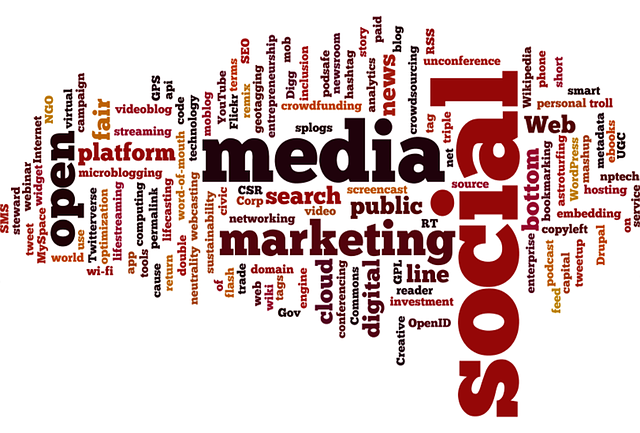In the competitive Houston SEO services market, on-page optimization is crucial for increasing online visibility. By optimizing key elements like titles, meta descriptions, and headers with relevant keywords, businesses can improve search engine rankings and drive organic traffic. Crafting compelling titles, writing persuasive meta descriptions, and using strategic header tags enhance a website's authority, foster engagement, and boost conversions. Best practices include keyword research for strategic placement, maintaining readability, and ensuring proper header use for improved user experience and search engine scanning efficiency.
In the competitive digital landscape, a strong on-page SEO strategy is essential for any business, especially those seeking top rankings with Houston SEO services. This article delves into the intricacies of optimizing crucial elements like titles, meta descriptions, and headers to boost online visibility. By understanding how these components interact, businesses can enhance their search engine rankings and deliver a better user experience, ultimately driving more traffic and conversions.
- Understanding On-Page SEO: The Cornerstone of Digital Visibility
- The Role of Titles and Meta Descriptions in Search Engine Optimization
- Optimizing Headers: Enhancing User Experience and Search Rankings
- Best Practices for Effective On-Page Element Tuning
Understanding On-Page SEO: The Cornerstone of Digital Visibility

In the digital landscape, where online visibility is key, On-Page SEO stands as the cornerstone for any successful Houston SEO services. It involves optimizing various elements on a webpage to enhance its relevance and authority in search engine results. By focusing on titles, meta descriptions, headers, and other crucial components, businesses can significantly improve their website’s ranking and attract more organic traffic.
Understanding On-Page SEO is essential for any digital marketing strategy. It ensures that each page of your website tells a compelling story, not just to humans but also to search engine crawlers. When these on-page elements are tailored with strategic keywords and compelling content, it creates a powerful connection between the user’s search query and your website’s offerings, ultimately driving better conversion rates and a stronger online presence in competitive markets like Houston.
The Role of Titles and Meta Descriptions in Search Engine Optimization

In the realm of Houston SEO services, on-page optimization is a cornerstone strategy for boosting online visibility and search rankings. Among these elements, titles and meta descriptions play pivotal roles in attracting potential customers and guiding them to your website. A compelling title, crafted with relevant keywords, acts as a beacon to search engines and users alike, clearly communicating the page’s subject matter. It’s not just about capturing attention; it’s also about driving actionable interest, ensuring visitors understand what they’ll find before clicking.
Meta descriptions, on the other hand, offer a concise overview of a webpage’s content, appearing as clickable snippets in search results. While they don’t directly influence rankings, persuasive meta descriptions can significantly increase click-through rates (CTRs), effectively converting search engine users into actual visitors. By aligning these on-page elements with targeted keywords and user intent, Houston SEO services can enhance organic reach, foster engagement, and ultimately drive conversions, making every aspect of your website a powerful tool in the digital landscape.
Optimizing Headers: Enhancing User Experience and Search Rankings

Optimizing headers is a crucial aspect of Houston SEO services that goes beyond mere aesthetics. Well-structured headers, including H1, H2, and H3 tags, serve as a roadmap for both search engines and users, making it easier to navigate your website’s content. When done right, it improves user experience by providing clear signposts for the information users are seeking.
Search engines, like Google, consider header tags as significant signals when determining a webpage’s relevance and ranking. Using relevant keywords in headers can strengthen your page’s authority on specific topics, boosting its position in search results. This, in turn, drives more organic traffic to your site, providing tangible benefits for any business looking to thrive online.
Best Practices for Effective On-Page Element Tuning

When it comes to on-page element tuning, especially for Houston SEO services, best practices involve a strategic and user-centric approach. Start by conducting thorough keyword research to understand what terms your target audience is using when searching for your products or services. Integrate these keywords naturally into your titles, meta descriptions, and headers, ensuring readability isn’t compromised. Each page should have a unique and compelling title that accurately reflects its content while keeping it under 60 characters to avoid truncation in search results.
Meta descriptions provide a brief overview of the page’s content, enticing users to click through from the search engine results page (SERP). Keep these concise, typically around 150-160 characters, and include a call to action. Headers (H1, H2, H3, etc.) should structure your content logically, making it easy for both search engines and visitors to scan and understand. Use headers to break up text blocks and highlight important sections, ensuring the hierarchy is clear and follows a logical flow of information.
In the realm of digital marketing, particularly with Houston SEO services, optimizing on-page elements is a crucial step towards enhancing your online visibility. By effectively structuring titles, meta descriptions, and headers, you not only improve user experience but also significantly boost your search engine rankings. Implementing these best practices can transform your website into a powerful tool that resonates with both users and search engines alike.
